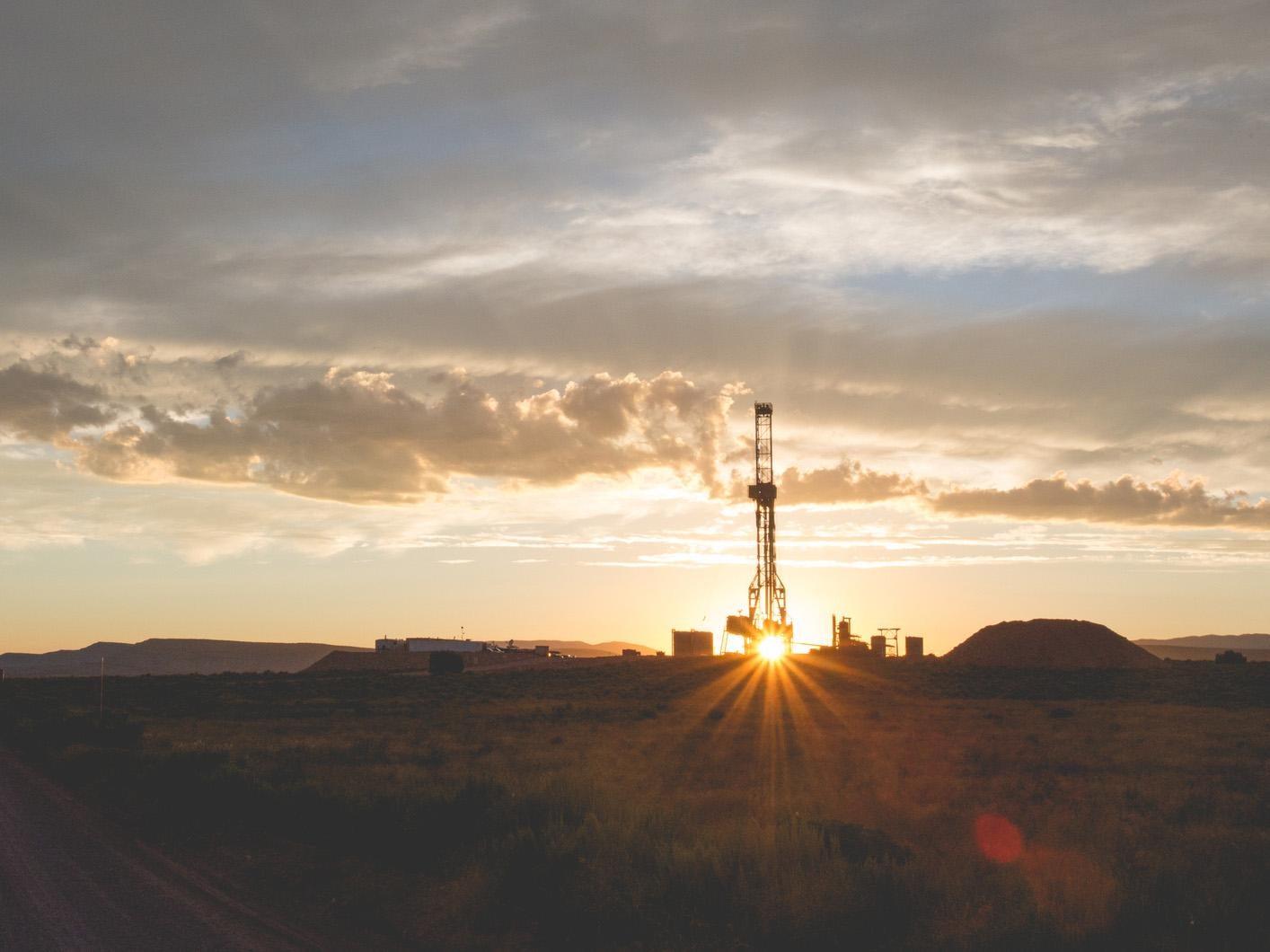Trump administration defeated as federal judge voids one million acres of oil and gas leases
The new terms for leases were overturned for being “more edict in nature” than consultative

Your support helps us to tell the story
From reproductive rights to climate change to Big Tech, The Independent is on the ground when the story is developing. Whether it's investigating the financials of Elon Musk's pro-Trump PAC or producing our latest documentary, 'The A Word', which shines a light on the American women fighting for reproductive rights, we know how important it is to parse out the facts from the messaging.
At such a critical moment in US history, we need reporters on the ground. Your donation allows us to keep sending journalists to speak to both sides of the story.
The Independent is trusted by Americans across the entire political spectrum. And unlike many other quality news outlets, we choose not to lock Americans out of our reporting and analysis with paywalls. We believe quality journalism should be available to everyone, paid for by those who can afford it.
Your support makes all the difference.A federal judge in Idaho has ruled that a Trump administration policy limiting public input on oil and gas leasing decisions was “arbitrary and capricious,” overturning the 2018 directive and voiding nearly 1 million acres of leases out West as a result.
The ruling by US chief magistrate judge Ronald E Bush on Thursday represented a win for environmentalists, who challenged the leasing policy as part of a broader effort to block drilling in habitat for the imperiled greater sage-grouse. The contested area spans 67 million acres across 11 Western states.
As the Trump administration has pushed to expand domestic energy production – earlier this month the Interior Department celebrated the fact that last year more than 1 billion barrels of oil were produced from drilling offshore and on public land – it has adopted several measures to curb public comment on regulatory decisions. While the effort has accelerated the timeline for drilling, it has also raised legal concerns.
The Interior Department’s Bureau of Land Management issued an instruction memorandum in January 2018 aimed at accelerating energy leasing by streamlining environmental reviews and reducing the amount of time the public could comment on, and later protest, any leases.
“Faster and easier lease sales, at the expense of public participation, is not enough,” wrote the judge, who reinstated previous requirements that call for a 30-day public comment and administrative protest period.
Judge Bush noted that the memo setting the new terms for leasing was issued without soliciting public comment and was “more edict in nature” than advisory.
The two groups that challenged the directive, the Western Watersheds Project and the Centre for Biological Diversity, said the decision provided a respite for species that are threatened by energy development. Once numbering as many as 16 million, development and disease has shrunk the total number of greater sage-grouse to fewer than 500,000.
“The court wasn’t fooled by the agency’s efforts to disguise its intention to provide greater influence to extractive energies, and the sage grouse and 350 other sagebrush-dependent species will benefit from today’s win,” Talasi Brooks, a staff attorney with Western Watersheds Project, said in a statement.
Energy industry officials decried the ruling, saying the plaintiffs deliberately chose to sue in Idaho because the state does not have much oil and gas development.
“This decision is so divorced from the rule of law that you would be hard pressed [to find] another judge in the entire federal court system who would say that producing leases should be cancelled because of a minor question of process,” said Western Energy Alliance President Kathleen Sgamma, whose group represents oil and gas firms and intervened in the case on the federal government’s side.
Nearly a year ago, the administration lifted Obama-era protections on nearly 9 million acres of federal land aimed at conserving sage-grouse habitat. At the time, Trump officials argued that the move would give the states greater say in setting the terms for energy development within their borders.
BLM spokesman Derrick Henry said in an email on Thursday that the directive at issue was part of the agency’s effort to make “common-sense adjustments” to how minerals are developed on federal land.
“In particular, we remain committed to a simpler, more effective leasing process,” Mr Henry said. “To do this, we have been working within our legal authorities to alleviate or eliminate unnecessary and burdensome regulations, while at the same time upholding public health and environmental protections, including sage-grouse conservation.”
The Washington Post
Join our commenting forum
Join thought-provoking conversations, follow other Independent readers and see their replies
Comments